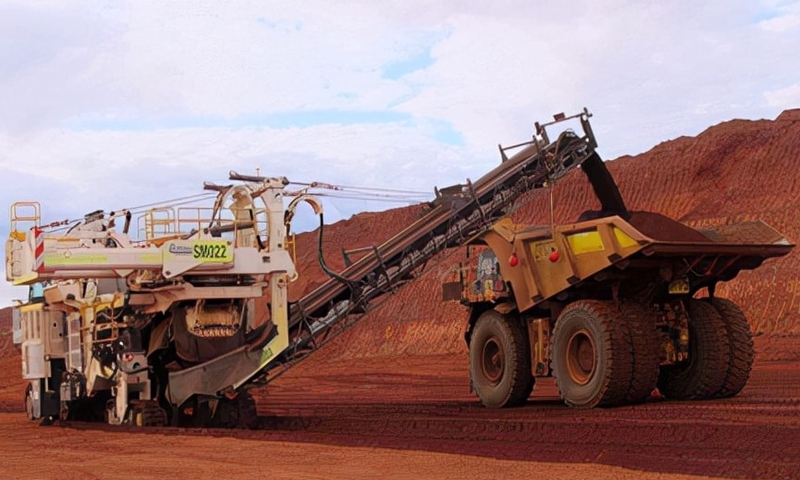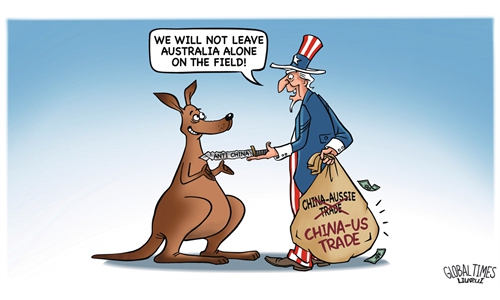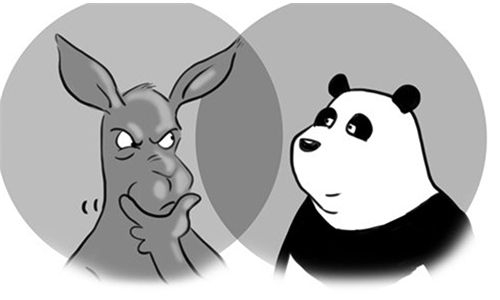
An iron ore mining site in Australia Photo: cnsphotos
Though China's imports from Australia maintained a relatively fast pace in November, the growth rate slowed for a 2nd consecutive month, according to Chinese official data on Tuesday, adding to growing indications that Australia may be losing share in the Chinese market to other countries, including its allies.
China's imports from Australia showed a year-on-year increase of 43.1 percent, narrowing by 0.5 percentage points compared with the first 10 months, data released by the General Administration of Customs (GAC) showed.
In October, the growth rate of China's imports from Australia slowed for the first time in 2021, down nearly two percentage points from the growth rate in the first nine months, data from the GAC showed.
According to a recent report by the Australia-China Relations Institute at the University of Technology Sydney, Australia's exports across 12 key non-iron-ore commodities affected by the souring bilateral relations - such as coal, barley, beef, timber, lobster and wine - plummeted by a staggering $17.3 billion in the first nine months of 2021, compared with 2019.
However, during the same period, the value of US exports of the same commodities increased by $6.3 billion.
"In other words, as Australia's trade war with China had a negative impact on its economy, its 'allies' benefited from it," Song Wei, a research fellow at the Chinese Academy of International Trade and Economic Cooperation, told the Global Times on Tuesday.
Song added that the decline of iron ore imports and the diminished export ability of Australia affected by the pandemic may be the major reasons for the slower growth of the bilateral trade.
From January to November, China imported 1.04 billion tons of iron ore and its concentrates, down 3.2 percent from the same period of 2020, the data showed.
China is seeking diversified iron ore resources and its steel industry is being upgraded in order to achieve the country's carbon neutral goal.
Song also noted that so far this year, Australia's extreme political stance toward China has led to the politicization of bilateral trade ties. Alongside the declining commodity trade, Australia may also lose more international students from China and technological output resulting from cooperation with China due to the souring bilateral ties.
"Australia should take a more rational attitude toward China, as both countries still have a strong trade complementarity," Song added.
In November, total bilateral trade reached $19.60 billion, with China's exports to Australia totaling $6.54 billion and imports from Australia accounting for $13.06 billion, according to the GAC.



